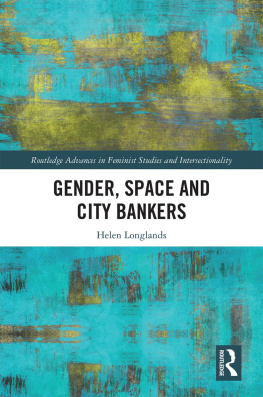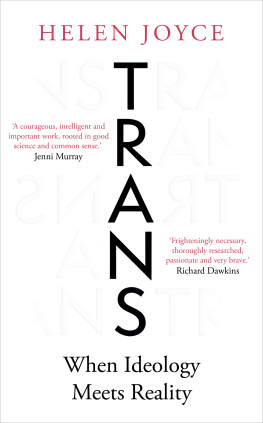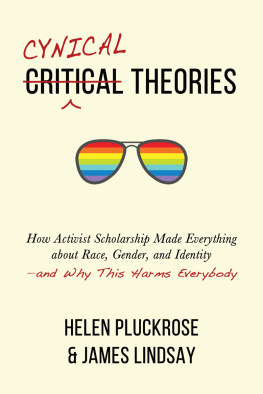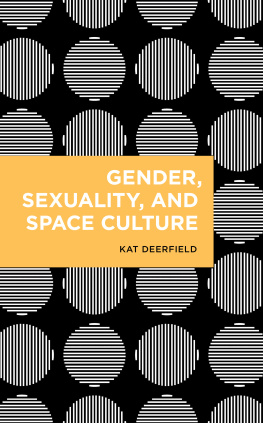Gender, Space and City Bankers
Gendered processes of globalisation, transnationalisation and urbanisation are increasing local and global inequalities and widening the gap between the rich and the poor. The global finance industry plays a key role in these processes, directing its operations from local command points in global cities such as London. Drawing on empirical data collected after the 2008 financial crisis in depth interviews with male City of London bankers who are also fathers, in depth interviews with the bankers wives, observational data of work and family spaces, and banks promotional online material this book explores the day-to-day individual and institutional social practices of wealthy City bankers and banks. The books analysis offers insight into how the spaces of work and home are integrally linked in ways that mutually shape, support and sustain the gendered dominance of the industry and its highly paid workers.
This book will appeal to postgraduate students, researchers and academics interested in the fields of gender studies, critical studies of men and masculinities, urban and metropolitan studies, sociology, studies of globalisation and transnationalisation, anthropology, cultural studies and business management. It will also be interesting for those concerned about the role of the finance industry and neoliberal capitalist ideologies, values and practices in ever-widening local and global inequalities.
Dr Helen Longlands is a lecturer in Education and International Development at UCL Institute of Education, University College London. Her research interests are interdisciplinary and centre on issues relating to gender, inequalities and social justice, particularly men, masculinities and transnational relationships and structures of power.
Routledge Advances in Feminist Studies and Intersectionality
Routledge Advances in Feminist Studies and Intersectionality is committed to the development of new feminist and pro-feminist perspectives on changing gender relations, with special attention to:
Intersections between gender and power differentials based on age, class, dis/abilities, ethnicity, nationality, racialisation, sexuality, violence and other social divisions.
Intersections of societal dimensions and processes of continuity and change: culture, economy, generativity, polity, sexuality, science and technology;
Embodiment: Intersections of discourse and materiality, and of sex and gender.
Transdisciplinarity: intersections of humanities, social sciences, medical, technical and natural sciences.
Intersections of different branches of feminist theorising, including: historical materialist feminisms, postcolonial and anti-racist feminisms, radical feminisms, sexual difference feminisms, queer feminisms, cyber feminisms, post-human feminisms, critical studies on men and masculinities.
A critical analysis of the travelling of ideas, theories and concepts.
A politics of location, reflexivity and transnational contextualising that reflects the basis of the Series framed within European diversity and transnational power relations.
Core editorial group
Professor Jeff Hearn (managing editor; rebro University, Sweden; Hanken School of Economics, Finland; University of Huddersfield, UK)
Dr Kathy Davis (Institute for History and Culture, Utrecht, The Netherlands)
Professor Anna G. Jnasdttir (rebro University, Sweden)
Professor Nina Lykke (managing editor; Linkping University, Sweden)
Professor Elbieta H. Oleksy (University of d, Poland)
Dr Andrea Pet (Central European University, Hungary)
Professor Ann Phoenix (Institute of Education, University of London, UK)
Professor Chandra Talpade Mohanty (Syracuse University, USA)
Gendered Power and Mobile Technology
Intersections in the Global South
Edited by Caroline Wamala Larsson and Laura Stark
The Reproductive Body at Work
The South African Bioeconomy of Egg Donation
Verena Namberger
Gender, Space and City Bankers
Helen Longlands
First published 2020
by Routledge
2 Park Square, Milton Park, Abingdon, Oxon OX14 4RN
and by Routledge
52 Vanderbilt Avenue, New York, NY 10017
Routledge is an imprint of the Taylor & Francis Group, an informa business
2020 Helen Longlands
The right of Helen Longlands to be identified as author of this work has been asserted by her in accordance with sections 77 and 78 of the Copyright, Designs and Patents Act 1988.
All rights reserved. No part of this book may be reprinted or reproduced or utilised in any form or by any electronic, mechanical, or other means, now known or hereafter invented, including photocopying and recording, or in any information storage or retrieval system, without permission in writing from the publishers.
Trademark notice: Product or corporate names may be trademarks or registered trademarks, and are used only for identification and explanation without intent to infringe.
British Library Cataloguing-in-Publication Data
A catalogue record for this book is available from the British Library
Library of Congress Cataloging-in-Publication Data
Names: Longlands, Helen, author.
Title: Gender, space and city bankers / Helen Longlands.
Description: Abingdon, Oxon ; New York, NY : Routledge, 2020. | Series: Routledge advances in feminist studies and intersectionality | Includes bibliographical references and index.
Identifiers: LCCN 2019015323| ISBN 9781138092853 (hardback) | ISBN 9781315107226 (ebook)
Subjects: LCSH: Banks and bankingSocial aspectsEnglandLondon. | Financial institutionsSocial aspectsEnglandLondon. | Sociology, Urban. | Elite. | Social stratification.
Classification: LCC HG3000.L82 L66 2020 | DDC 332.1082/09421dc23
LC record available at https://lccn.loc.gov/2019015323
ISBN: 978-1-138-09285-3 (hbk)
ISBN: 978-1-315-10722-6 (ebk)
Typeset in Times New Roman
by codeMantra
In memory of my father
James Thomas Longlands 19381988
For his love, kindness and compassion
A number of institutions and individuals have helped me bring this book to fruition, and I am very grateful for their support, advice and kindness along the way.
My gratitude goes particularly to the ESRC for funding my initial research study, and to the Library of Congress in association with the AHRC/ESRC for awarding me a scholarship to conduct research at the Kluge Academic Center, Library of Congress, Washington, DC, which was a valuable and enriching experience. I am also enormously grateful for the opportunity I was given to be part of the inspiring, collaborative and hugely supportive GEXcel (Joint University Centre of Gender Excellence) fellowship programme, Research Theme 9 on Gendered Sexualed Transnationalisations, Deconstructing the Dominant: Transforming Men, Centres and Knowledge/Policy/Practice, at Linkping University, Sweden, funded by the Swedish Research Council. And I am incredibly thankful to Emily Briggs and Elena Chiu at Routledge/Taylor & Francis for working so considerately with me in the production of this book, as well as the Series Editors Jeff Hearn and Nina Lykke.
In addition, I am very grateful for all the support from and discussions with colleagues, students and friends at UCL Institute of Education that helped me develop, question, revisit, extend and clarify my thinking. I would particularly like to thank Elaine Unterhalter, Amy North, Jon Swain, Jenny Parkes, Ivette Hernandez Santibaez, Rosie Peppin Vaughan, Jo Heslop, Alexandra Lewis, Miriam David and my other colleagues at the UCL Centre for Education and International Development. I have been enormously fortunate to present and discuss my work in seminars and at conferences in different parts of the world, and I offer special thanks to Richard Collier, Winnie Poster, Sebastin Madrid, Raewyn Connell and Anika Thym for their insightful and encouraging comments on my research.








